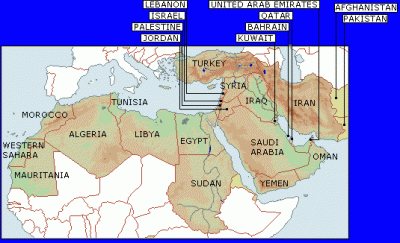 By Condoleezza Rice
By Condoleezza Rice
The civil war in Syria may well be the last act in the story of the disintegration of the Middle East as we know it. The opportunity to hold the region together and to rebuild it on a firmer foundation of tolerance, freedom and, eventually, democratic stability is slipping from our grasp.
Egypt and Iran are states with long, continuous histories and strong national identities. Turkey is as well, but there is the matter of the Kurds, who are still largely unassimilated, mistrusted by Ankara and tempted by the hope of independent nationhood.
Every other important state is a modern construct, created by the British, who drew borders like lines on a back of an envelope, without regard for ethnic and sectarian differences. The results: A Bahrain that is 70 percent Shiite, governed by a Sunni monarch. Saudi Arabia was created with a 10 percent Shiite population in its richest provinces to the east. Iraq is 65 percent Shiite, 20 percent Sunni, and a mix of Kurds and others, all ruled until 2003 by an iron-fisted Sunni dictator. Jordan’s population is almost 70 percent Palestinian. Lebanon is roughly evenly divided among Sunnis, Shiites and Christians. And then there is Syria: a conglomerate of Sunnis, Shiites, Kurds and others, ruled by the Alawite minority.
This fragile state structure has been held together for decades by monarchs and dictators. But as the desire for freedom has spread from Tunis to Cairo to Damascus, authoritarians have lost their grip. The danger is that these artificial states could fly apart.
In Iraq, after overthrowing Saddam Hussein, the United States hoped that a fledging multi-ethnic, multi-confessional democracy could do what authoritarians could not: give all of these groups a stake in a common future. To an extent it has, with elections repeatedly producing inclusive governments. But the institutions are young and fragile, and they are groaning under the weight of the region’s general sectarian explosion. The conflict in Syria is pushing Iraq and others to the breaking point. At the same time, U.S. disengagement has tempted Iraqi politicians to move toward sectarian allies for survival. If Prime Minister Nouri al-Maliki cannot count on the Americans, he will take no risks with Tehran.
The great mistake of the past year has been to define the conflict with Bashar Assad’s regime as a humanitarian one. The regime in Damascus has been brutal and many innocent people have been slaughtered. But this was no replay of Libya. Much more is at stake.
As Syria crumbles, Sunnis, Shiites and Kurds are being drawn into a regional web of confessional allegiances. Karl Marx once called on workers of the world to unite across national boundaries. He told them that they had more in common with each other than with the ruling classes that oppressed them in the name of national unity. Marx exhorted workers to throw off the “false consciousness” of national identity.
Today’s Karl Marx is Iran. It envisions the spread of its influence among Shiites, uniting them under the theocratic flag of Tehran — destroying the integrity of Bahrain, Saudi Arabia, Iraq and Lebanon. Iran uses terrorists groups, Hezbollah and the Shiite militias in southern Iraq to do its bidding. Syria is the linchpin, the bridge into the Arab Middle East. Tehran no longer hides the fact that its security forces are working in Syria to prop up Assad. In this context, Tehran’s sprint toward a nuclear weapon is a problem not just for Israel but the region as a whole.
In response, Saudi Arabia, Qatar and other neighboring powers arm and support Sunni factions. The Turks are being drawn into the conflict, desperately fearful that the Kurds will break away in Syria and push their brethren in Turkey to do the same. Missile and mortar strikes are increasingly common across the borders of Israel and Turkey. Ankara’s cry to NATO for help should have gotten our attention.
But where is the United States? America has spent 12 months trying to get the Russians and the Chinese to agree to toothless U.N. resolutions to “stop the bloodshed,” as though Moscow will abandon Assad and Beijing really cares about chaos in the Middle East. Vladimir Putin is not a sentimental man. But if he believes that Assad can survive, he will do nothing to undermine him.
In recent days, France has stepped into the diplomatic vacuum to recognize a newly formed opposition that is broadly representative of all Syrians. The United States should follow Paris’s lead and then vet and arm the unified group on the condition that it pursues an inclusive post-Assad framework. The United States’ weight and influence are needed. Leaving this to regional powers, whose interests are not identical to ours, will only exacerbate the deepening sectarianism.
Certainly there are risks. After more than a year of brutal conflict, the most extreme elements of the opposition — including al-Qaida — have been empowered. Civil wars tend to strengthen the worst forces. The overthrow of Assad could indeed bring these dangerous groups to power.
But the breakdown of the Middle East state system is a graver risk. Iran will win, our allies will lose and for decades the region’s misery and violence will make today’s chaos look tame. War is not receding in the Middle East. It is building to a crescendo. Our elections are over. Now, America must act.
Condoleezza Rice was the US secretary of state from 2005 to 2009.
Washington Post

Leave a Reply
You must be logged in to post a comment.